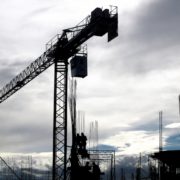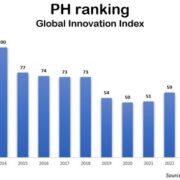“For the past year, the entire government— Executive, Legislative, Judiciary — has been working as one to promote national and regional competitiveness. With the latest results of the IMD competitiveness rankings, we underscore the initial outcomes from this whole of government approach and increased private-public sector collaboration,” Trade and Industry chief Lopez said.
In the latest 2019 IMD World Competitiveness Yearbook, the Philippines recorded significant improvements on all the 4 indicators measured in the report:
1) Economic Performance (up 12 notches from 50th to 38th),
2) Government Efficiency (up 3 notches from 44th to 41st);
3) Business Efficiency (up 6 notches from 38th to 32nd);
4) Infrastructure (up 1 notch from 60th to 59th).
The report also noted upgrades in the following:
1) Government budget surplus/deficit;
2) Effective personal income tax rate;
3) Gross fixed capital formation – real growth;
4) Tourism receipts and protectionism, and among others.
While downgrades were seen in these areas:
1) Current account balance;
2) Consumer price inflation;
3) Collected total tax revenues;
4) Compensation levels;
5) Exchange rate stability.
The 2019 IMD Report highlighted that the Philippines needs to speed up and sustain investments in these areas:
1) Physical infrastructure
2) Resolve inadequate investment in human capital
3) Address poor digital competitiveness and future-readiness
4) The need to sustain investor and consumer confidence
5) Persistent political risks.
According to Arturo Bris, IMD Professor and Director of IMD World Competitiveness Center, the research center which compiles the ranking, “In a year of high uncertainty in global markets due to rapid changes in the international political landscape as well as trade relations, the quality of institutions seem to be the unifying element for increasing prosperity. A strong institutional framework provides the stability for business to invest and innovate, ensuring a higher quality of life for citizens”.
Secretary Lopez said that government has been and will continue to be more aggressive in its efforts to improve competitiveness and ease of doing business, reminding all that competitiveness and ease of doing business is Priority#3 in the socio-economic agenda of the President. “We are changing the way government is providing public services — such as streamlining and automating licensing procedures. Our Build. Build. Build program is currently on track. We are gearing up our industries, enterprises and government to maximize the opportunities of the digital economy combined with a huge domestic market of the Philippines. We are pursuing a national competitiveness agenda anchored on Regional competitiveness with its the four pillars namely: Economic Dynamism, Government Efficiency, Infrastructure, and Resilience”, Lopez said.
The DTI Secretary viewed the IMD WCY results “a good development but we need to do more and with the continuing financial and investment reforms, plus the aggressive infrastructure development program and in the further streamlining of all government procedures for ease of doing business, we expect better competitiveness position in the next review. This government’s DNA is about collaboration with industry & academe in making sure that we build & link together the innovation & entrepreneurship ecosystem. This is crucial as we prepare industries for Industry 4.0. Our message: today’s reforms are tomorrow’s business,” Lopez added.
The IMD-WYC Report is an annual publication that measures competitiveness rankings of countries based on official statistics and an Executive Opinion Survey.
—
Stay updated with news and information from the Department of Trade and Industry by visiting their website at https://www.dti.gov.ph.






